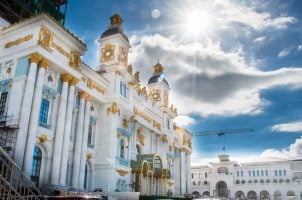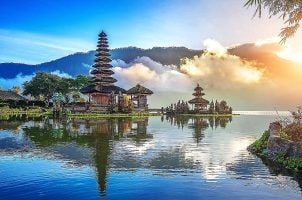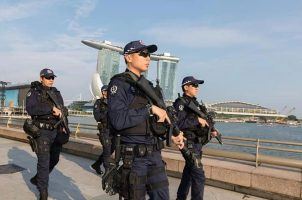Imperial Pacific Presents Termination Agreement for Failed Saipan Casino Resort
Posted on: March 5, 2024, 04:47h.
Last updated on: March 6, 2024, 11:36h.
Imperial Pacific International, the beleaguered Hong Kong-based company that possesses the lone commercial casino license for the Northern Mariana Islands (NMI), has presented the U.S. territory with a separation agreement.

IPI is controlled by Chinese billionaire Cui Lijie, whose fortune stems from her investment in Macau junket group Heng Sheng. A doctor by trade, Cui, more than a decade ago, embarked on an ambitious effort to build and open her casino resort by way of the Northern Mariana Islands.
Cui and her son, Ji Xiaobo, won the lone casino concession for the NMI in 2013 and pitched the government in the Pacific Ocean a multibillion-dollar integrated resort casino scheme. Her company, Imperial Pacific, made a series of pledges to the U.S. territory government in exchange for the casino license — guarantees that NMI officials say haven’t been met.
Resort Disaster
The NMI casino project, Imperial Pacific Resort Hotel Saipan, was to be a $3.9 billion venture. The project was a disaster long before it even opened.
The FBI raided the construction site after a worker died. Allegations circulated that laborers weren’t being paid and workplace conditions were hazardous. U.S. federal law enforcement also probed the temporary casino that operated amid construction. That’s after it reported billions of dollars in revenue to quickly become one of the world’s richest casinos despite its small size. Money laundering allegations were later raised.
The $500 million first phase of the sprawling luxury resort opened in July 2017. The destination wowed the few visitors who traveled to Saipan with its impressive exterior and interiors featuring an abundance of gold ornaments. But with IPI reportedly cutting corners during construction, concerns were raised about the structural integrity of the property.
Imperial Pacific’s casino revenues plummeted after federal and local authorities were brought in to monitor the flow of cash through the facility. The property was nearing bankruptcy when it was forced to shutter in March 2020 because of the COVID-19 pandemic. It never reopened.
The NMI government and Commonwealth Casino Commission said Imperial Pacific failed to uphold its end of the license terms. Those included paying the island territory an annual $15 million gaming fee, a yearly $3.1 million payment to cover regulatory costs, and an annual $20 million donation to the NMI Community Benefit Fund.
Local officials say annual licensing and regulatory fees haven’t been received since 2021. The annual Community Benefit Fund donation hasn’t been made since 2017.
Resort Transfer
This week, IPI revealed it presented the Northern Mariana Islands with a termination agreement to resolve the legal scandal. Imperial reps have offered to pay the island $31 million in outstanding licensing payments and another $16 million to lift the Commonwealth Casino Commission’s suspension of the gaming concession.
The approximately $47 million offer, if accepted, would allow IPI to separate from its 25-year contractual agreement it reached with the NMI in 2013.
Inside Asian Gaming, however, reports that NMI Gov. Arnold Palacios has motioned to reject the proposal.
IPI attorneys say the governor is wrongly interjecting himself into the matter and that the CCC had previously suggested it would recommend approving the separation agreement. Imperial Pacific is trying to depart the NMI and give the shuttered casino resort to its lenders, primarily Tokyo’s Kyosei Bank, and transfer the gaming license to the financial institution.
Imperial Palace has been a major loser for Cui. It’s believed that the project cost her around $1 billion, reducing her fortune in half to roughly $1 billion.
Related News Articles
Crown Resorts May Have Fed Indonesian Governor’s Illegal Gambling Habit
Indonesia Arrests 31 Individuals Employed by Online Gambling Sites
Singapore’s Illegal Gambling Crackdown Continues With New Arrests
Most Popular
Las Vegas Overstated F1 Race’s Vegas Impact — Report
Mega Millions Reportedly Mulling Substantial Ticket Price Increase
NoMad Hotel to Check Out of Park MGM on Las Vegas Strip
Most Commented
-
End of the Line for Las Vegas Monorail
— April 5, 2024 — 90 Comments -
Mega Millions Reportedly Mulling Substantial Ticket Price Increase
— April 16, 2024 — 8 Comments -
Long Island Casino Opponents Love New York Licensing Delays
— March 27, 2024 — 5 Comments
















No comments yet